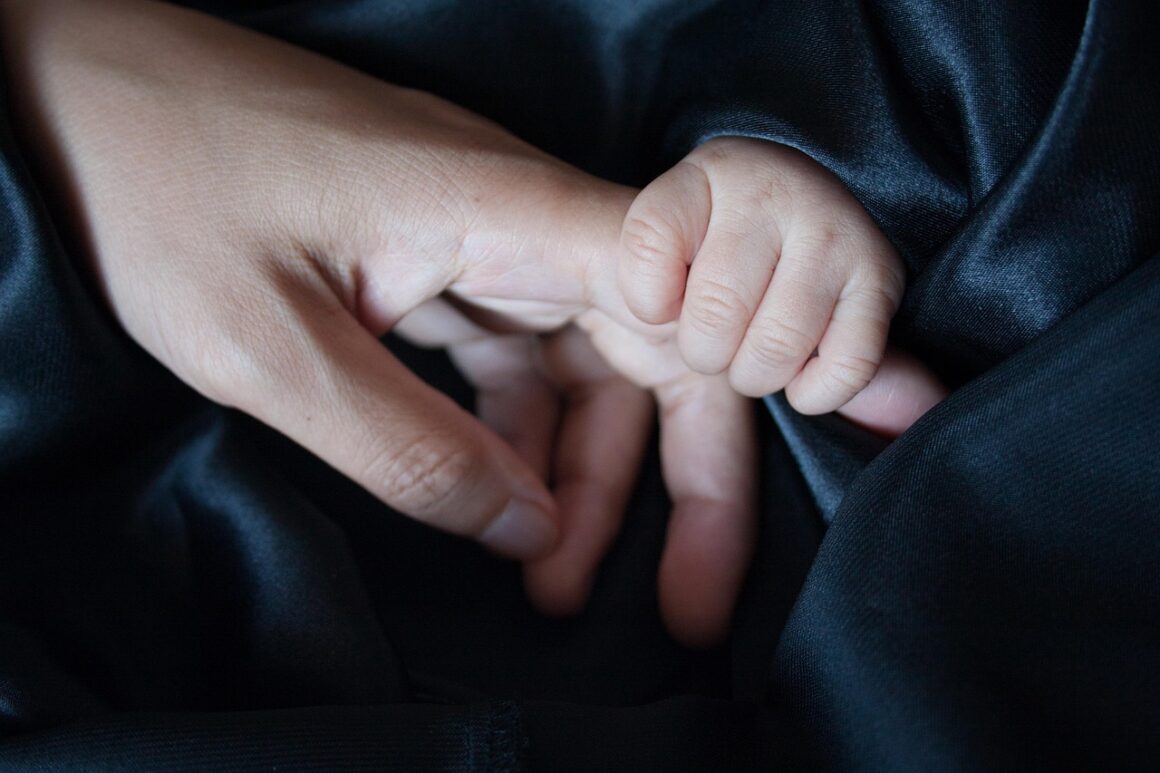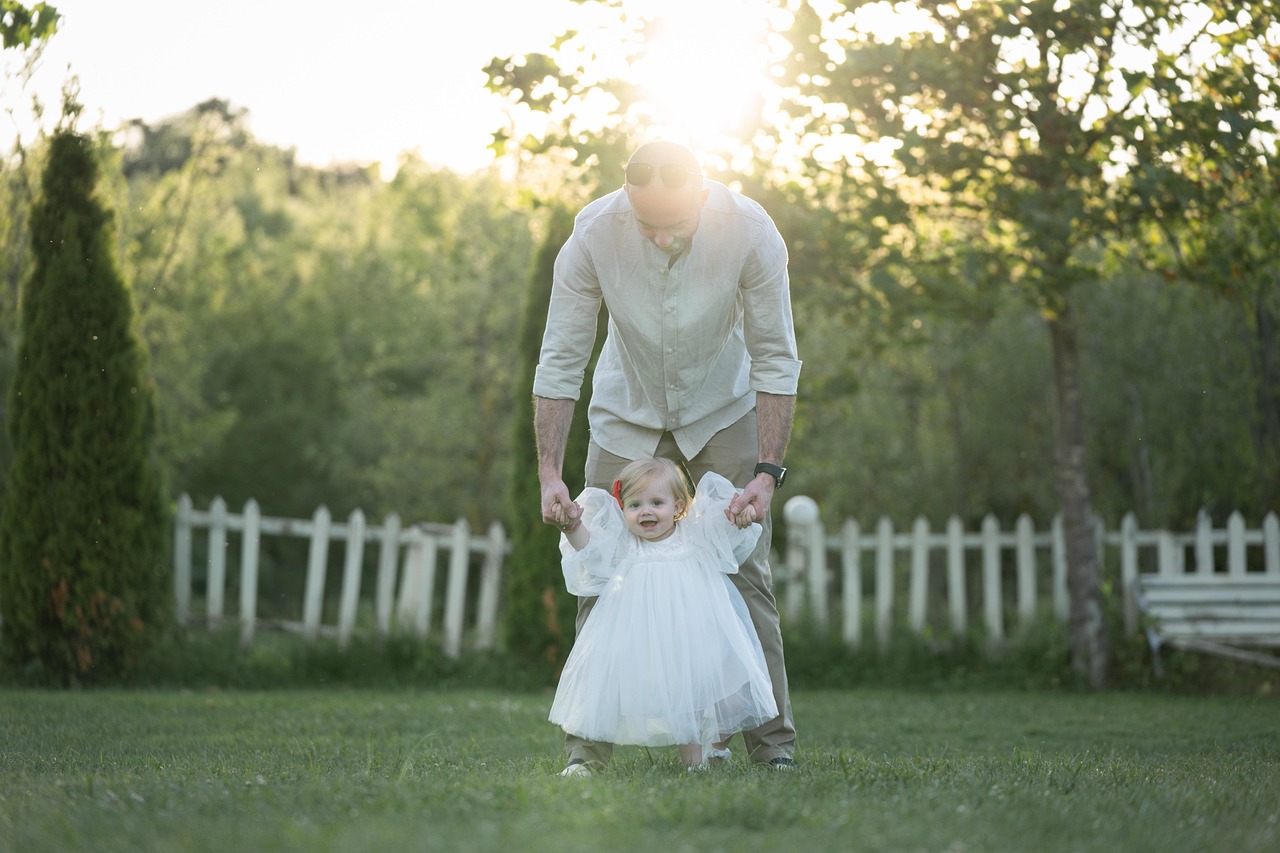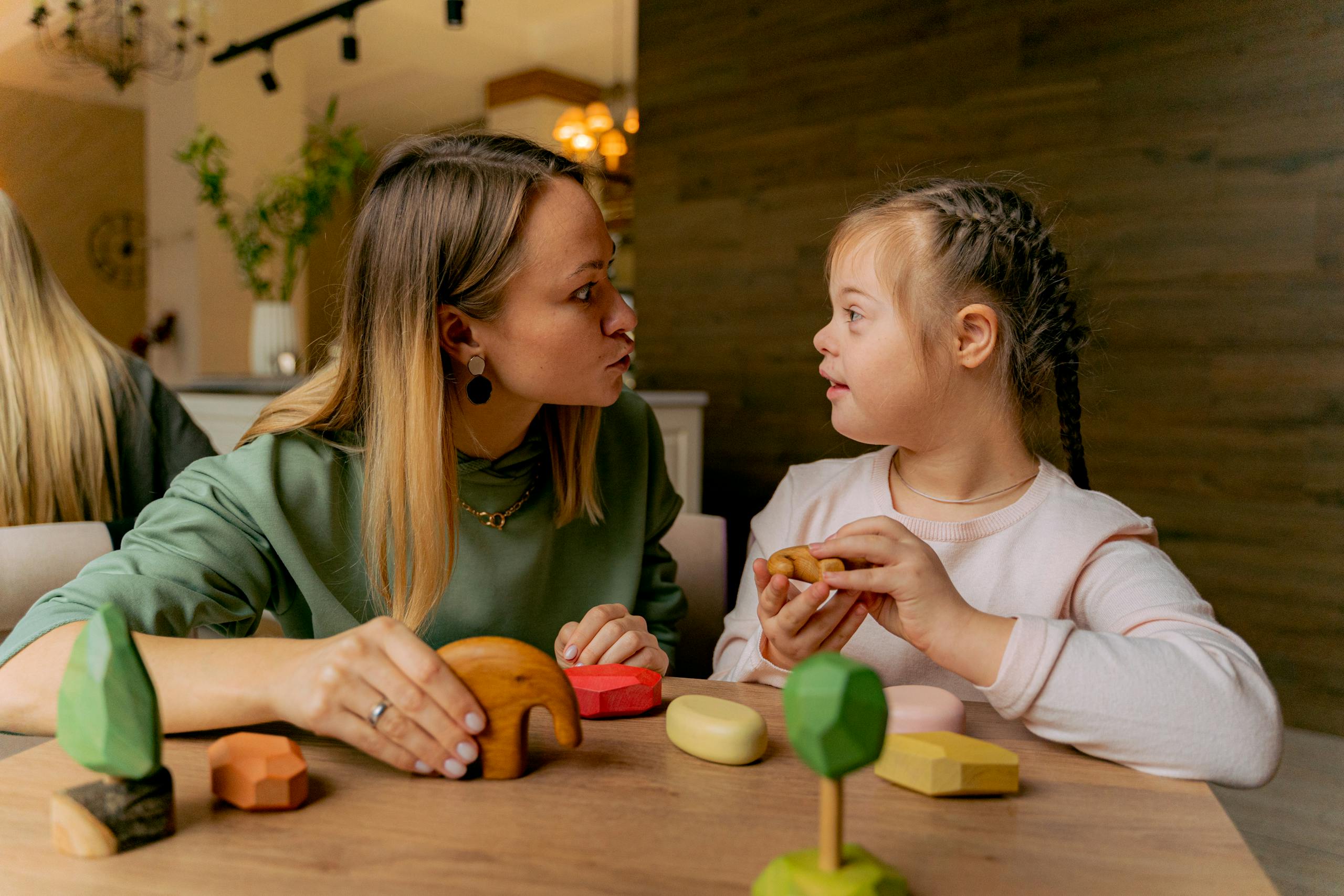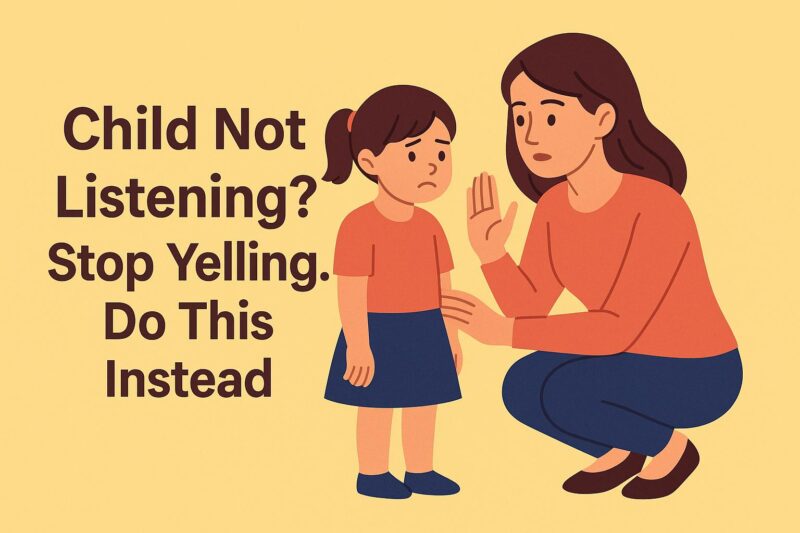Getting Ready For A New Chapter as New Parents
Becoming a parent is one of life’s most profound transformations. Whether you’re expecting your first child or planning to start a family, the transition into parenthood brings joy, uncertainty, and a deep sense of responsibility. Preparing yourself—emotionally, physically, and practically—can help ease the anxiety and make space for the excitement ahead. Here’s a guide to help you navigate the road to parenthood with confidence and care as you enter this New Chapter as New Parents.

1. Emotional Preparation: Embracing The Unknown
Parenthood begins long before the baby arrives. It’s not just about preparing the nursery, choosing names, or attending doctor’s appointments—though those are important too. At its core, becoming a parent is a profound emotional and mental transformation. It’s a journey that often begins with self-reflection and continues through waves of excitement, anxiety, uncertainty, and love.
Many prospective parents find themselves grappling with complex emotions as they anticipate the changes ahead. Alongside the joy and anticipation, it’s completely normal to feel fear, doubt, and even a sense of grief for the life and identity that may be shifting or left behind. Your routines, relationships, and even your sense of self will evolve—and that’s okay. Recognizing and honoring these feelings is an important part of emotionally preparing for parenthood.
One of the most powerful tools during this time is honest, compassionate communication. Whether with a partner, family member, close friend, or support network, talking openly about your hopes, fears, and expectations can ease the emotional load. Discuss how responsibilities will be shared, how you’ll support each other during challenging moments, and how you can create space for both connection and individual growth.
If you’re feeling overwhelmed, consider journaling your thoughts or speaking with a therapist. Writing things down can help clarify your feelings and reveal patterns that might not be obvious at the moment. Therapy can offer a safe space to explore your emotions, develop coping strategies, and feel more grounded as you prepare for this new chapter.
Emotional readiness doesn’t mean having all the answers or feeling 100% confident every day. It means being willing to learn, to adapt, and to grow—both as an individual and within your evolving family dynamic. Parenthood is a continuous process of discovery. By approaching it with openness, curiosity, and compassion—for yourself and for others—you lay the foundation for a loving, resilient family.
2. Educating Yourself: Knowledge Is Reassurance
No one is ever fully prepared to become a parent. Even the most well-organized birth plans and perfectly stocked nurseries can’t account for every twist and turn of the parenting journey. That’s because parenthood is deeply personal and unpredictable. However, educating yourself can go a long way toward easing the initial uncertainty and helping you feel more confident in your decisions.
Consider starting with prenatal classes, which can provide practical guidance and a supportive community of other expectant parents. These classes often cover labor and delivery, pain management options, postpartum recovery, and the basics of newborn care. Many are offered in person, while others are available online for greater convenience.
Books written by pediatricians, child development specialists, and experienced parents can also be valuable resources. Choose a few that align with your values and avoid overwhelming yourself with conflicting advice. Podcasts, reputable parenting websites, and social media accounts run by qualified professionals can offer bite-sized tips on topics like sleep patterns, feeding methods, babywearing, and infant mental health.
But here’s the key: Don’t over consume. It’s easy to fall into a cycle of endless scrolling, reading, and second-guessing. The internet is full of information, but not all of it is helpful—or even accurate. Too much input can lead to anxiety, especially when it’s accompanied by unrealistic portrayals of parenthood.
Idealized images on social media rarely show the full story—the messy, exhausting, beautiful reality of raising a child. Try not to compare your journey to the filtered versions you see online. Every baby is different. Every parent is different. Every family finds their own rhythm.
Instead of striving for perfection, aim to be informed and flexible. Trust your instincts, and give yourself grace as you learn. Focus on quality over quantity: Choose a handful of credible sources that resonate with you and turn to them when you need guidance or reassurance.

Remember, becoming a parent isn’t about having all the answers—it’s about being willing to grow, to ask questions, and to respond with love, even when things don’t go as planned. Learning is part of the process, and with the right support and mindset, you’re more prepared than you think.
3. Planning Practically: Setting Up For Success
Practical preparations can significantly reduce stress and free up your time and energy once your baby arrives—allowing you to focus on bonding, healing, and adjusting to your new rhythm as a family. While emotional readiness is vital, having your physical environment and logistical plans in place can offer a sense of stability and confidence.
Start by creating a safe and comfortable sleeping area for your baby. Whether you choose a crib, bassinet, or co-sleeping arrangement, ensure it meets current safety guidelines—such as a firm mattress, fitted sheet, and no loose blankets or stuffed toys. Keeping your baby’s sleep space close to your bed can also make nighttime feeds and diaper changes easier during those early weeks.
Next, stock up on essential baby supplies, but don’t feel pressured to have everything all at once. Focus on the basics: diapers (both newborn and the next size up), a few changes of clothing in different sizes, wipes, bottles (even if you plan to breastfeed—flexibility helps), burp cloths, and a car seat that meets safety standards. Other useful items include swaddles, a baby carrier or wrap, and a place for supervised daytime play, such as a mat or bouncer.

Planning your parental leave is another crucial step. Communicate with your employer about your leave options well in advance and clarify your rights, whether it’s maternity, paternity, or shared parental leave. Consider discussing a potential transition plan for your return to work, including flexible scheduling or remote options if available.
Don’t overlook the importance of organizing key documents. This includes health insurance information, pediatrician contacts, prenatal and hospital records, and legal documents like wills or powers of attorney if applicable. Having everything in one accessible folder can save you time and energy during moments when you need quick answers or appointments.
Financial preparation is equally important. Review your current budget to account for new recurring costs—such as diapers, formula, childcare, or healthcare expenses. If possible, build or maintain an emergency fund to help cover unexpected costs, like medical bills or extended time off work. Remember, you don’t need to buy everything brand-new or top-of-the-line. Babies grow quickly, and many items—especially clothing and gear—can be found gently used through local parent groups, resale shops, or friends and family.
Above all, keep it simple. Practical readiness isn’t about perfection or having the “Pinterest-perfect” nursery. It’s about creating a calm, functional space and putting thoughtful systems in place that make everyday life with your baby just a little bit easier. With some planning now, you’ll be better equipped to focus on what matters most: caring for your baby and yourself with patience, presence, and love.
4. Taking Care Of Yourself: You Matter Too
Preparing for parenthood isn’t just about getting ready for the baby—it’s also about caring for yourself. In the whirlwind of to-do lists, nursery setups, and parenting books, it’s easy to overlook your own well-being. But the truth is, your physical and mental health form the foundation of your parenting journey. When you take care of yourself, you’re better equipped—physically, emotionally, and mentally—to care for your child.
Start by making space for the basics: rest, nourishing meals, and gentle movement. Sleep might already be disrupted during pregnancy or limited in the newborn stage, but even small pockets of rest matter. A short nap, quiet time with your feet up, or going to bed a little earlier can make a difference. Similarly, eating well doesn’t have to be complicated. Focus on simple, balanced meals that give you steady energy and support your body’s changing needs. Hydration is just as important—keep a water bottle nearby and sip often.
Gentle exercise can also support both physical and emotional health. Whether it’s a short walk, prenatal yoga, stretching, or just dancing to your favorite song in the kitchen, moving your body helps reduce stress, ease discomfort, and improve your mood. Listen to your body and find what feels good—you’re not training for a marathon, you’re nurturing your resilience.
Just as vital are the activities that bring you joy and help you stay grounded. That might be reading a book, doing a creative hobby, spending time with friends, journaling, meditating, or simply sitting outside in the sun. Joy is not frivolous—it’s sustaining. These moments of connection to yourself are deeply nourishing, especially when life feels overwhelming or uncertain.
It’s important to remember that self-care might look different during pregnancy or early parenthood. You might not have long stretches of uninterrupted time, and that’s okay. Self-care isn’t always about bubble baths and spa days—it can be as simple as asking for help, saying no to extra obligations, or choosing rest over productivity. It’s about tuning in to your needs and responding with compassion.
And above all, know this: self-care is not selfish. Taking care of yourself is an act of love for your baby, too. A healthy, supported parent is more patient, present, and emotionally available. When you model self-respect and balance, even in small ways, you’re also laying the groundwork for a healthy family dynamic in the future.
So as you prepare for the incredible journey of parenthood, don’t forget to put yourself on the checklist. You matter—your well-being matters—and nurturing yourself is one of the best ways to nurture your child.
5. Expecting the Unexpected: Staying Flexible
No amount of planning can fully predict what lies ahead. Parenthood is one of life’s greatest adventures—and like any true adventure, it comes with twists, turns, and the unexpected. Babies are wonderfully unique, and they rarely follow even the most carefully thought-out plans. Some surprises will fill your heart with joy—a first smile, the sound of their cooing, the way they rest so peacefully in your arms. Others will test your patience—sleepless nights, inconsolable crying, or the feeling that nothing you’re doing is “right.”
Plans will shift. Routines will be broken. Sleep will be elusive. You may find yourself reworking your entire day around a nap that never happens, or trying five different ways to soothe your baby with no success. This is normal. Frustrating, yes—but normal. The most important tool in your parenting toolkit isn’t the latest gadget or parenting trend. It’s flexibility—the ability to adapt, to try again, and to let go of what you thought things “should” look like.
Just as important is self-compassion. You will make mistakes. You will have moments where you feel unsure, overwhelmed, or not enough. But those moments do not define your worth as a parent. They’re part of the process. Growth doesn’t come from getting everything perfect—it comes from showing up, again and again, with love and effort, even when it’s hard.
Perfection is not the goal. Presence is. Your baby doesn’t need a flawless parent. They need you—attentive, caring, and willing to be there, even when you’re tired or uncertain. What matters most is that you keep trying, keep learning, and stay emotionally connected. Often, the smallest gestures—a calm voice, a warm cuddle, eye contact—mean more than any perfectly executed routine.
Give yourself permission to adjust expectations and to celebrate the small victories: getting a burp after a long feed, taking a shower, or managing a short nap without interruption. These moments may seem small from the outside, but they are milestones in the rhythm of early parenthood. They are proof that you are doing the work—even if it doesn’t always look picture-perfect.
Above all, remember that parenting is not a performance—it’s a relationship. One built over time, with effort, patience, and an open heart. If you can stay grounded in that truth, and treat yourself with the same tenderness you give your child, you’re already doing an incredible job.
Conclusion: A New Chapter, A New You
The road to parenthood is paved with questions, preparation, and heart. It’s a journey that begins long before your baby arrives and continues for a lifetime. You’ll ask yourself things you never thought to ask. You’ll prepare in ways both practical and emotional. And you’ll discover strength, tenderness, and resilience within yourself that you never knew existed.
At times, this journey may feel daunting. You may worry if you’re ready, if you’re doing things “right,” or if you’ll be enough. These thoughts are natural—and they are signs not of weakness, but of how deeply you care. You are stepping into a role that will stretch and shape you in profound ways. It’s normal to feel vulnerable. But woven into that vulnerability is incredible beauty.

Parenthood is full of growth, joy, and a kind of love that’s impossible to describe until you’ve felt it. It’s in the tiny fingers wrapped around yours, in the quiet moments in the dark, and in the awe of watching a brand-new person discover the world through your eyes. These moments don’t erase the challenges—but they give them meaning and depth.
This new chapter won’t just change your schedule or your surroundings. It will change you—in the best, most meaningful ways. You’ll gain a deeper understanding of patience, empathy, and what it means to show up for someone else. You’ll evolve, not just as a parent, but as a person.
So, embrace it. Embrace the messiness and the magic. The sleepless nights and the soulful firsts. The questions, the doubts, and the tiny victories that slowly build a strong, loving bond. Prepare for it—with intention, curiosity, and openness—but know that you’ll never be perfectly “ready,” and that’s okay.
And most importantly, know that you don’t have to walk this road alone. Whether it’s a partner, a friend, a family member, a support group, or a professional—lean on others. Seek community. Ask for help. Parenting is not meant to be a solitary journey. It’s a shared human experience, and there is strength in connection.
Whatever your path looks like, trust that you are growing into the parent your child will need—and that love, more than anything, will guide the way.






